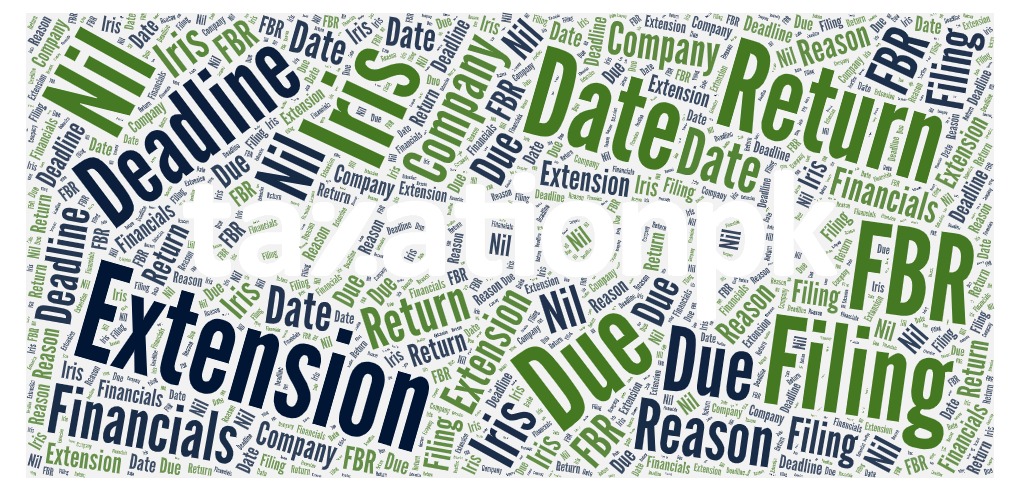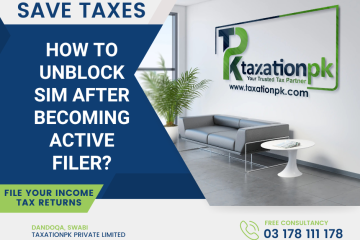Navigating deadlines and paperwork can be daunting, especially when it comes to taxes. Thankfully, Section 119 of the Income Tax Ordinance 2001 (ITO 2001) offers a lifeline: requesting an extension for filing tax returns. This article delves into the intricacies of Section 119, empowering you to understand your rights and responsibilities when requesting an extension.
Who Can Apply for an Extension?
If the last date for filing of Tax Return is upon you and you could not file the tax return due to any circumstances you shall file for Extension in time for filing of tax Return.
Any person who is liable to file tax returns, can file for extension in time. If one need more time to submit any of the following documents, Section 119 allows you to apply for an extension:
- Income tax returns: For filing of Income Tax Returns under sections 114 and 117 (for closed businesses)
- Employer’s certificates: verifying salary income
- Wealth statements: Although Income Tax authorities give ample time to gather documents (from July till September) still some information can require extra time.
- Overseas Pakistani: Persons residing outside homeland can find it difficult to gather necessary information for filing of tax returns.
When to Apply:
The key to a smooth extension process is timeliness. You must apply for an extension by the original due date for submitting the document in question. Delaying your request can decrease your chances of approval. Extension applied after the due date has elapsed has less chances of approval. Multiple extensions can also be applied.
Getting the Extension Granted:
The Commissioner has the authority to grant extensions based on your reason for requesting one. Acceptable reasons include:
- Absence from Pakistan: Travel or unforeseen circumstances outside the country.
- Sickness or other misadventure: Health issues or unexpected events hindering your ability to file.
- Any other reasonable cause: Provide compelling justification for your delay.
Even if you dont get the approval notification immediately, dont panic. You are automatically allowed first extension so try to fulfill obligation by then.
Cause in many cases it is seen the that extension is allowed after the time has elapsed e.g extension was applied on 30th September for 15 days and extension was granted on October 15, and your notice will be saying that the extension was allowed till October 15.
Duration of the Extension:
Generally, extensions granted under Section 119 cannot exceed 15 days from the original due date. However, the Commissioner may grant a longer extension under exceptional circumstances.
Extension by Filing Nil Return:
The Income Tax Ordinance allows taxpayers in Pakistan to revise their income tax returns within 60 days of the initial filing date. This option is available to address any omissions or misstatements that may have occurred.
Filing a Nil Return and Revising Later:
One strategy some taxpayers consider is filing a nil return initially and then revising it within the 60-day window. However, it’s important to exercise caution with this approach.
Risk Factors:
- Risk of Missing the Deadline: If you forget to file the revised return within the 60-day window, you will effectively have a nil return on file.
- FBR Audit Selection: The FBR may prioritize nil returns for audits, as they can indicate potential underreporting.
Remember:
- Chief Commissioner’s Role: If the Commissioner denies your extension request, you can appeal to the Chief Commissioner for a further extension, again for a maximum of 15 days unless exceptional circumstances warrant a longer period.
- Payment Due Date Unchanged: Receiving an extension doesn’t postpone your tax payment deadline. Ensure you pay your income tax on time, regardless of the extension granted for filing your return.
- Default Surcharge Applicable: Even with an extension, the default surcharge under Section 205 may still apply if you delay filing beyond the original due date.
Staying Compliant:
Requesting an extension is a legitimate option, but remember:
- Transparency is Key: Be honest and transparent when explaining your reason for needing an extension.
- Supporting Documentation: Provide any relevant documents supporting your claim, such as medical certificates or travel documents.
- Professional Guidance: Consulting a tax advisor can help navigate the process and ensure your request is presented effectively.
By understanding Section 119 and exercising your right to request an extension responsibly, you can avoid unnecessary stress and penalties while fulfilling your tax obligations with confidence.








tex return ptcl statment not recived